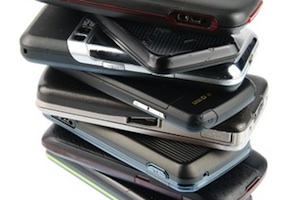Last updated April 12, 2019
 Cell phones have become controversial in recent months because they provide users with the ability to instantly capture still photos and videos as well as communicate rapidly in real time. Using data access and services such as Twitter and Facebook, cell phone users can broadcast messages to hundreds or even thousands of people at once, something that was not possible with traditional voice-only telephones. This unique ability of cell phones to ‘stir up a crowd’ has caused government authorities in some areas of the world to shut down cell phone networks during protests or other large public events.
Cell phones have become controversial in recent months because they provide users with the ability to instantly capture still photos and videos as well as communicate rapidly in real time. Using data access and services such as Twitter and Facebook, cell phone users can broadcast messages to hundreds or even thousands of people at once, something that was not possible with traditional voice-only telephones. This unique ability of cell phones to ‘stir up a crowd’ has caused government authorities in some areas of the world to shut down cell phone networks during protests or other large public events.
Chicago will host the NATO and G-8 summits this coming May, and already, the issue of electronic communications is becoming a hot button topic for both city officials and those who plan to attend the events in order to stage protests. A Chicago city councilman has already begun discussing possible police action during the events; he wishes to prohibit the police authorities from interfering with cell phone networks. This position is in favor of free speech rights for protestors.
On the other hand, it may also lead to violence if protests get out of hand and disintegrate into riots. In such a case, cutting electronic communications could be a good move, one that protects public safety. Governments in both Egypt and the United States have used the tactic to silence protestors. It remains to be seen if such actions will become commonplace in this country or if the councilman’s views will prevail and cell phone networks will remain free from interference even during times of unrest.